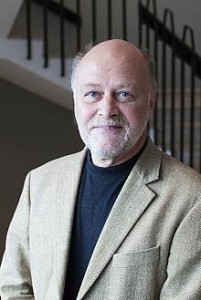When is the time to hate?
By Professor Klas Borell
Anti-Muslim prejudice and hate crimes increase in Europe and the USA after sudden and dramatic events, a new study in the journal Islam and Christian–Muslim Relations reveals. Hate crimes are, however, in themselves dramatic events with paradoxical effects.
The study compared data from the USA and Europe to analyze the temporal links between dramatic and unexpected events and Islamophobic prejudice and hate crime. Anti-Muslim prejudice has deep historical roots in the Western world but Islamophobic attitudes and Islamophobic hate crimes seem to a large extent to be event-driven; terrorist bombings cause Islamophobia to flare up but, in calmer times, it subsides again, although to a relatively high level. Terrorist’s most persuasive message is that of fear. Fear, a primary and strong emotion, increases risk estimates and has distortive effects on the perception of ordinary Muslims. Widespread Islamophobic prejudice seems, according to several European and American studies, to contribute to anti-Muslim hate crime, but indirectly. Terrorist attacks and intensified Islamophobic prejudice serve as a window of opportunity for extremist group and networks.
Prominent hate crimes can, however, have paradoxical effects and are, in themselves, dramatic events with the capacity to influence public opinion. Hate crimes are, in essence, message crimes with the purpose of frightening an out-group and also making impressions on a perceived in-group. But when hate crime is highlighted in the media, it often triggers a strong counter-reaction; hate crimes challenge a collective moral consciousness and can lead to a sense of outrage so strong that people are prepared to take action. Such actions can take both internal and external form. Hate crimes can function as a catalyst for resistance within a targeted out-group but can also have wider effects: notorious hate crimes seem to trigger initiatives that promote alliances between targeted minorities and other actors. A statistically representative study of Muslim congregations in Sweden illustrates the paradoxical effect. In the very places with the greatest number of hate crimes, outside support for the congregations was broader and more vocal. Hate crimes galvanized community organizations and individuals who were willing to support Muslims’ right to practice their religion freely; and when such forces rally round, it becomes possible for Muslim congregations to make allies and develop.
The recent attention paid to the role of unexpected, dramatic events represents a new and a very promising approach to the study of prejudice and hate crimes; with the earlier, essentially spatial research focus now complemented by a temporal focus, the chances increase of charting the dynamics of prejudice and hate crime.
Klas Borell
Full bibliographic information: Klas Borell “When Is the Time to Hate? A Research Review on the Impact of Dramatic Events on Islamophobia and Islamophobic Hate Crimes in Europe”, Islam and Christian–Muslim Relations (Taylor & Francis).
DOI: 10.1080/09596410.2015.1067063
ISSN: 0959-6410 (Print), 1469-9311 (Online)

